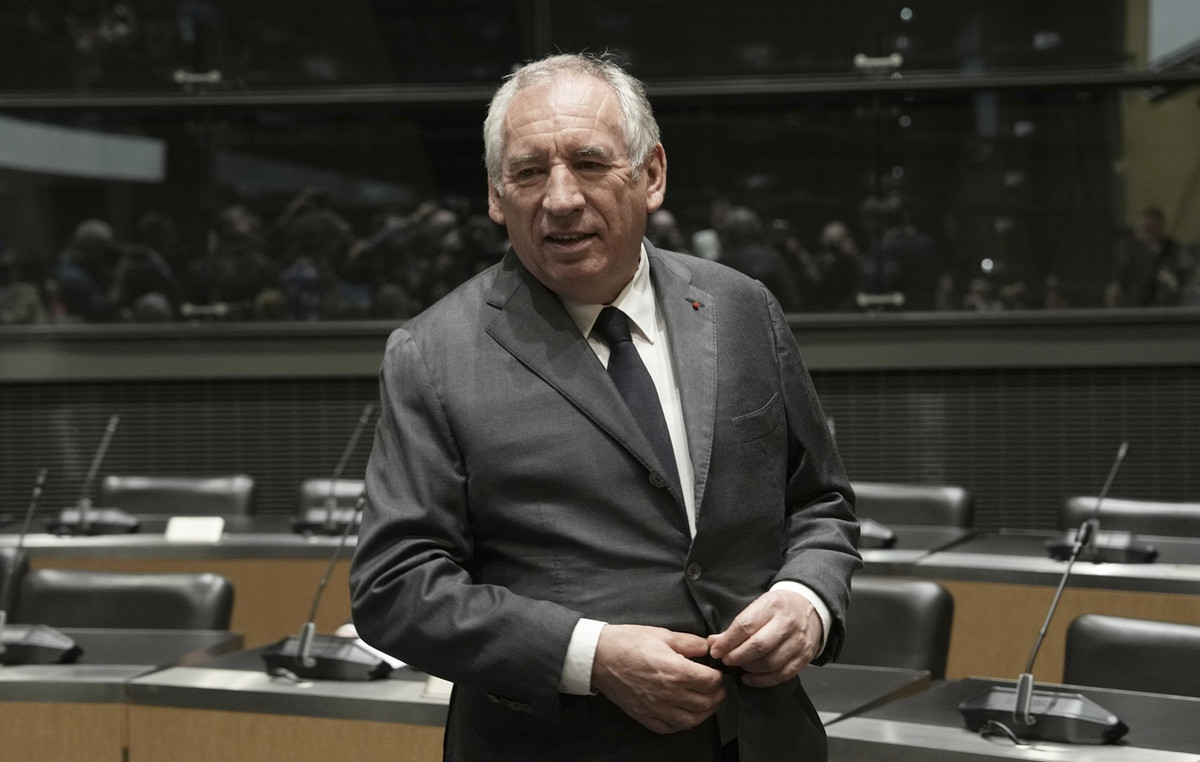Despite a great advance on Saturday (19), the international climate negotiations at the UN COP27 climate summit will be defined on Sunday (20), at the closing plenary of the event.
For the second year in a row, marathon talks continued well beyond schedule as countries tried to craft stronger talk about phasing out all fossil fuels, including oil and gas, rather than just coal, according to several NGOs. who observed the negotiations.
Elsewhere, progress has been made. On Saturday, the parties reached an interim agreement to establish a “loss and damages” fund for nations vulnerable to climate disasters, according to negotiators with the European Union and Africa, as well as non-governmental organizations.
The United States is also working to sign an agreement on a damages fund, Whitney Smith, a spokeswoman for US climate envoy John Kerry, told the CNN 🇧🇷
The fund will focus on what can be done to support loss-and-damage remedies, but does not include liability or compensation provisions, a senior Biden administration official told CNN 🇧🇷 The United States and other developed nations have long sought to avoid such provisions that could open them up to legal liability and lawsuits from other countries.
If finalized, this could represent a major step forward in negotiations on a contentious issue – and is seen as a reversal, as the US has opposed efforts to create such a fund in the past.
All is not yet settled – a European Union source directly involved in the discussions warned early on Saturday that the deal is part of broader COP27 negotiations, which must be approved by nearly 200 countries. The negotiators worked through the night until Sunday. And other issues, including language about fossil fuels, remain, according to several NGOs observing the talks.
But progress has been made, the source said. In a discussion on Saturday afternoon Egypt time, the EU got the G77 bloc to agree to direct the fund to vulnerable nations, which could pave the way for a deal on damages.
If finalised, the deal would represent a major step forward on the international stage and far exceed the expectations of this year’s climate summit, and the mood among some of the delegates was one of jubilation.
Countries most vulnerable to climate disasters – but which have contributed little to the climate crisis – have struggled for years to secure a damages fund.
Developed nations that historically produced most of the planet’s warming emissions were hesitant to sign up to a fund that they thought would open them up to legal liability for climate disasters.
Details on how the fund would operate remain unclear. The draft text says a fund will be established this year, but leaves many questions about when it will be finalized and become operational, climate experts told reporters on Saturday. The text talks about a transition committee that will help define these details, but does not set future deadlines.
“There are no guarantees on the timing,” Nisha Krishnan, director of resilience at the World Resources Institute Africa, told reporters.
Advocates of a loss and damages fund were pleased with the progress, but noted that the draft is not ideal.
“We are happy with this result because it is what developed countries wanted – although it is not all they came here for,” Erin Roberts, founder of the Loss and Damage Collaboration, told CNN in a statement.
“Like many, I too have been conditioned to expect too little from this process. While establishing the fund is certainly a victory for developing countries and those on the frontlines of climate change, it is an empty shell without funding. It’s too little, too late for those on the front lines of climate change. But we will work on it.”
At COP27, demand for a damages fund – from developing countries, the G77 bloc and activists – reached a fever pitch, driven by a series of major weather disasters this year, including Pakistan’s devastating floods.
tense final hours
The conference was extended for the first time on Saturday, before continuing into the early hours of Sunday morning, with negotiators still working out details as workers dismantled the event’s structure. At times, there was a real sense of weariness and frustration. Complicating matters, Kerry – the top US climate official – is in self-isolation after recently testing positive for Covid-19, working over the phone instead of having face-to-face meetings.
And earlier on Saturday, European Union officials threatened to walk out of the meeting if the final agreement does not endorse the target of limiting warming to 1.5 degrees Celsius above pre-industrial levels.
Global scientists have warned for decades that warming must be limited to 1.5 degrees – a limit that is fast approaching as the planet’s average temperature has already risen to around 1.1 degrees. Beyond 1.5 degrees, the risk of extreme drought, wildfires, floods and food shortages will increase dramatically, scientists said in the latest report by the UN’s Intergovernmental Panel on Climate Change (IPCC).
At a carefully choreographed press conference on Saturday morning, EU Green Deal Czar Frans Timmermans, flanked by a full lineup of ministers and other senior officials from EU member states, said that “no deal is better than a bad one. wake up”.
“We don’t want 1.5 Celsius to die here and today. This for us is completely unacceptable, ”she said.
The EU made clear it was willing to agree to a damages fund – a big change from its stance compared to just a week ago – but only in exchange for a strong commitment to the 1.5 degree target.
As the sun set in Sharm el-Sheikh on Saturday night, the mood shifted to cautious jubilation, with groups of negotiators beginning to hint that a deal was in sight.
But, as is always the case with high-level diplomacy, officials were quick to stress that nothing is really agreed until the final hammer falls.
Source: CNN Brasil
Bruce Belcher is a seasoned author with over 5 years of experience in world news. He writes for online news websites and provides in-depth analysis on the world stock market. Bruce is known for his insightful perspectives and commitment to keeping the public informed.







